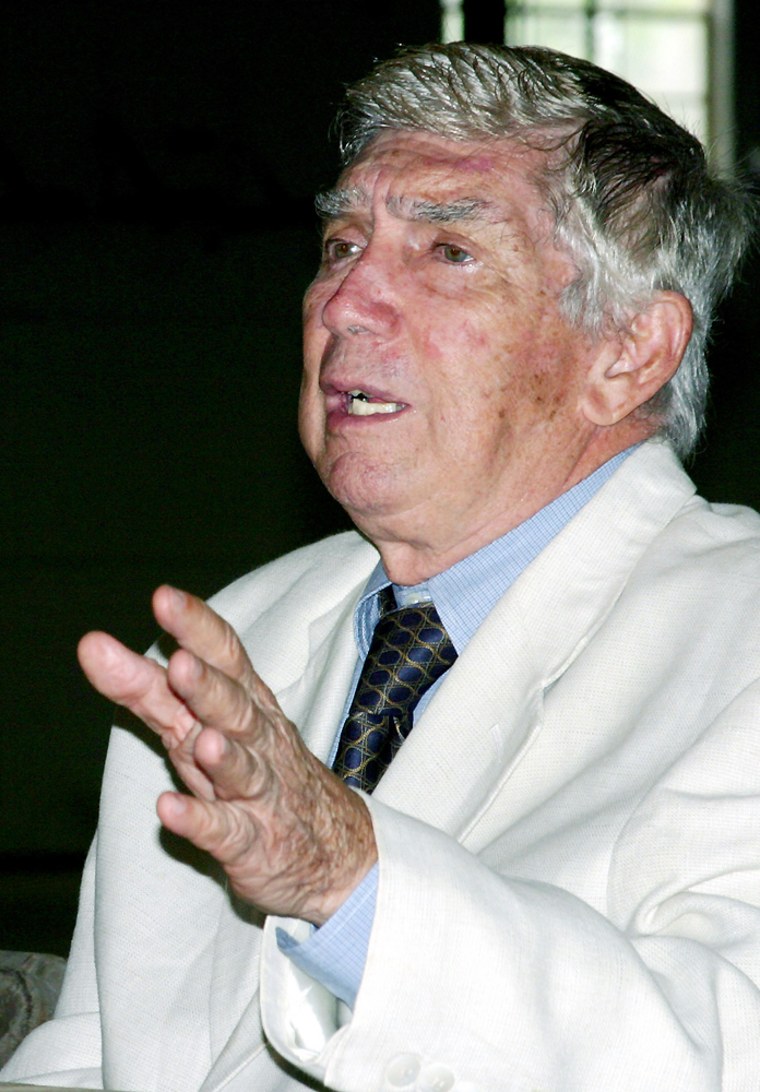The lawyer for a Cuban exile accused of planning the deadly bombing of a Cuban airliner in 1976 argued Monday that his client never gave up his U.S. residency and asked that court proceedings on immigration charges be moved to Florida.
Luis Posada Carriles is charged with entering the country illegally this year in a case that has sparked an international battle. Several Latin American and Caribbean governments are demanding his deportation and retrial as a terrorist in Venezuela.
A staunch foe of Fidel Castro, the 77-year-old Posada is not charged with a crime in the United States but could be deported — especially with the Bush administration holding other governments to strict account for harboring terrorists.
Posada was twice acquitted in Venezuela of charges related to the bombing that killed 73 people when the Cuban airliner crashed off the coast of Barbados. He escaped from a Venezuelan prison in 1985 as a prosecutor's appeal was pending.
He was arrested in Miami last month and has been held in a federal detention center in El Paso since then. He has claimed that he sneaked into the country from Mexico in mid-March.
Eduardo Soto, Posada's attorney, argued Monday that his client has never lost his U.S. residency despite being out of the country for years.
"He made a choice at some point in the early '60s to put himself ... against the interests of Fidel Castro. He's in love with this country," Soto said.
But federal immigration officials have said that leaving the country for more than one year typically voids an immigrant's permanent resident status.
U.S. Immigration Judge William L. Abbott said he would issue a ruling on the change-of-venue request but did not say when. Abbott set a tentative Aug. 29 hearing on whether Posada gave up his permanent residency when he became a Venezuelan citizen. He also set a bond hearing for June 24.
Posada, wearing a red jail uniform and bulletproof vest, did not comment other than to say "yes, sir" after the judge's questions were translated into Spanish.
Trial location an issue
Soto has been Posada's attorney for years and is now representing him for free. He said he wants the trial moved because holding it in El Paso would cause hardships for him. Posada also wants to be closer to his family in Miami, Soto said.
Prosecutors said holding Posada in south Florida would present security risks.
A one-time CIA operative and former Venezuelan security official, Posada has been accused of planning the 1976 attack; the plot allegedly was hatched in Venezuela. He has repeatedly denied involvement in the bombing.
About a dozen protesters demanding Posada's extradition stood outside the gated detention center Monday. Some held signs comparing Posada to Osama bin Laden.
The Venezuelan government last month requested Posada's provisional arrest, but the request was denied by U.S. officials because of lack of information. Venezuela sent additional information to the U.S. State Department on Friday, including details of an alleged congratulatory meeting between Posada and the bombers.
According to the recently released documents, Posada was overheard saying he and others would "hit a Cuban airplane," shortly before the plane was blown up.
